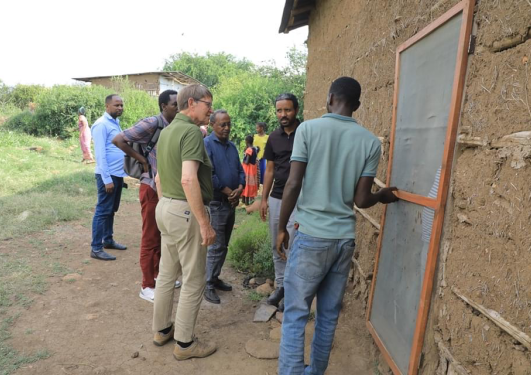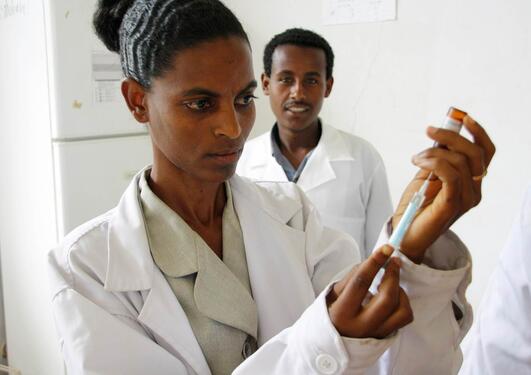SENUPH II - Educating and training professional staff and future leaders in southern Ethiopia
Professor Bernt Lindtjørn from the Centre for International Health leads a NORHED II project that will expand the ongoing capacity-building activity at Hawassa University to include Arba Minch and Dilla Universities in southern Ethiopia.

Main content
The vision for this proposed project is to improve the population's health in southern Ethiopia.
Despite substantial economic growth over the past few decades, Ethiopia remains among the 20 poorest countries in the world. Health-wise, the population is in transition with declining fertility, increasing life expectancy, heavy burdens of poverty-related diseases, and an increasing load of non-communicable diseases. The country needs evidence-based healthcare to improve health policy, thereby improving the population's health.
We aim to build capacity in higher education at both the universities and the Ministry of Health. Our aim is that the universities in southern Ethiopia can produce the relevant information needed for policymakers to enhance and improve public health work in the area. The universities shall work within a network of institutions concerned with public health in the region to develop research programmes focusing on infectious diseases, malnutrition and the emerging burden of non-communicable diseases.
We will build on our previous joint PhD degree programme between Hawassa University and the University of Bergen to strengthen research training at Dilla and Arba Minch Universities. We will not only develop PhD and postdoc research, but we will link this to training at the master's level. Our focus will be to strengthen the ownership, capability, and sustainability of the training programme at the universities working with the Ministry of Health to establish evidence-based healthcare.
- A historic moment: the first UiB – Hawassa University joint PhD degree defended
- Presentation in the journal Nature (bruk lenke https://www.nature.com/articles/d41586-023-00956-8)
The teaching, research, and implementation work will be closely integrated. It will involve epidemiology, medicine, priority setting, health economics, and household economics. The research will be supported by strengthening laboratory services, which will give much-needed support in managing emerging and existing epidemics. By the end of the project period, we expect to have strengthened two sustainable PhD programmes.
New to this project is the addition of post-doc training. Here, we aim to develop and continue to build independent researchers capable of research leadership, supervising future PhD students, mentoring post-docs, and who can further develop their institutions when this project ends.
- Learn more (bruk link https://senuph.w.uib.no)
Objectives
We shall strengthen capacity-building initiatives for staff and students at three universities in southern Ethiopia, Hawassa, Arba Minch and Dilla. We will focus on enhanced training of health research personnel, including leadership and management, and engage in research to assess and reduce the disease burden. We will incorporate evidence-based priority-setting research to ensure that the results enhance public health and ensure equity.
Our focus will be on the
- Prevention and treatment of infectious diseases such as malaria, intestinal parasites and respiratory tract infections
- Priority setting, exploring novel ways for health insurance, and prevention and treatment of non-communicable diseases with emphasis on diabetes and hypertensive disorders
- Implement novel methods to reduce malnutrition among school children by applying potentially new local products.
- Improving maternal and neonatal health
- Climate and Nutrition

